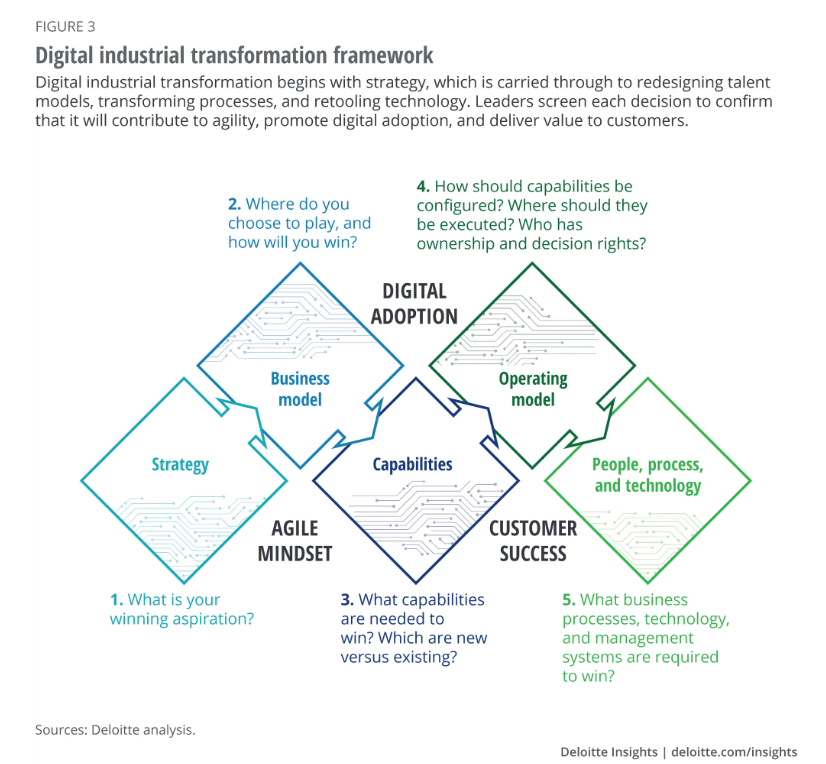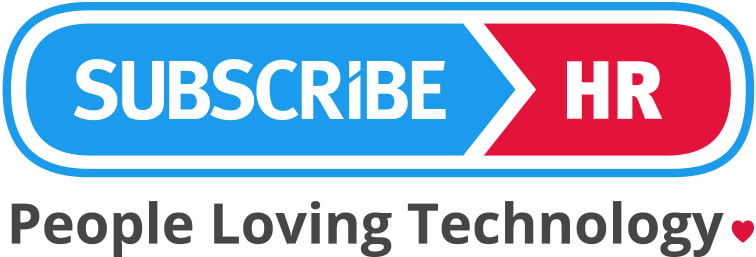We're all conscious of the fact that working in a shifting market landscape with constant disruption, all the while leveraging automation to optimise production, is an ongoing challenge. According to Deloitte's research about the age of 'Industry 4.0,' many leaders view the transition required by digital transformation as complex and challenging. However necessary digital industrial transformation may be on an organisation’s path to becoming fully connected, the journey if often hindered by speed bumps. Deloitte’s Industry 4.0 Readiness Report found that only 14 percent of the 1,600 C-level executives surveyed are confident that their organisations are ready to fully harness the changes associated with Industry 4.0. As organisations are called on to transform along with the market and society itself, what types of business models will serve the organisations of the future? In this week's HR Blog we explore the future of work through the lens of Industry 4.0 and the emergence of the 'Teal' organisation model as a possible framework for navigating business transformation with success.
Deloitte's Readiness Report poses the question: 'Are you prepared to succeed in the Fourth Industrial Revolution?' To explore the question of “readiness” for Industry 4.0, Deloitte Global’s survey of C-level executives focused on four major areas:
-
Social impact: What do today's executives see as their roles in making the world a better place - not just for their organisations, but for society as a whole?
-
Strategy: In what ways are today's executives using Industry 4.0 technologies to transform their perspectives, revolutionise their decision making and inform their business strategies to create new value for ALL stakeholders?
-
Talent and the workforce: How are executives reconfiguring their current talent strategies and workforces for the changes Industry 4.0 will bring, and how are they sourcing new talent?
-
Technology: Do executives see Industry 4.0 technologies as a toolset to improve business as usual, or are they harnessing the full potential of smart technologies to enable digital-physical integration, holistic decision making and new business models?
What Deloitte discovered during their research is the executives surveyed may well conceptually understand the changes Industry 4.0 will bring to their business, to the social fabric of society and to individuals, they are much less certain how they can take action to benefit from those changes. The survey focused on four areas of impact and uncovered tensions between opposites that will need to be reconciled as part of navigating the path to future business success. Here are the key takeaways.
Want to ensure that your business strategies are communicated, understood and put into action from Leadership all the way through the organisation? Your HR toolkit needs a solution that enables you to embed strategy at every stage of the employee lifecycle. Take a look at our Performance Management solution.
Social impact - Optimism vs. Ownership
While executives see a more stable future with less inequality in society, they are less convinced about the role that they (or their organisations) will be able to play in influencing society in an Industry 4.0 era.
-
Executives overwhelmingly (87 percent) believe Industry 4.0 will lead to more social and economic equality and stability, and two out of three say business will have much more influence than governments and other entities shaping this future.
-
However, less than a quarter believe their own organisations hold significant influence over societal key factors such as education, sustainability and social mobility.
Strategy - Static vs. Dynamic
Executives acknowledge they may not be ready to harness the changes associated with Industry 4.0. However, this lack of readiness has thus far not compelled them to alter their current strategies.
-
Only one-third of the executives surveyed are highly confident they are capable of acting as stewards for their organisation during this time of change. Further, just 14 percent are highly confident that their organisations are ready to fully harness the changes associated with Industry 4.0.
-
Many executives continue to focus on traditional business operations, as opposed to focusing on opportunities to create new value for their direct and indirect stakeholders.
Talent and the workforce - Evolution vs. Revolution
Executives lack confidence that they have the right talent in place to be successful in Industry 4.0. They say they are doing all they can to build the right workforce, but their responses show talent remains low on their list of priorities.
-
Only a quarter of executives are highly confident they have the right workforce composition and the skill sets needed for the future.
-
However, talent and HR are a relatively low priority (17 percent), despite 86 percent of executives saying they are doing everything they can to create a better-prepared workforce for this new era.
Want to discover how to ace employee onboarding in your business - take a look at our free eGuide about Employee Lifecycle Automation that outlines everything you need to know about onboarding success. Better still, we offer our Employee Onboarding software FOR FREE! Request your personalised demonstration here.
Technology - Challenged vs. Prepared
Executives understand they need to invest in technology to drive new business models; however, they have a hard time making the business case for that investment because of a lack of internal strategic alignment and an ongoing short-term focus.
-
Executives say their current technology investments are strongly driven by technology that can support new business models, which they say will have one of the greatest impacts on their organisations over the next five years.
-
However, very few executives say they have a strong business case for investing in advanced technology. When asked what the hindrances were, executives most often point to a lack of internal alignment (43 percent), a lack of collaboration with external partners (38 percent) and a focus on the short term (37 percent).
Want to uncover more about digital transformation in HR? Take a look at these two Blogs: 'Your HR Digital Transformation Starts Here' and 'Management's Next Frontier - The Digital Ecosystem'.
Need Cloud HR software to get the digital transformation started in your organisation - take a look at our FREE Onboarding solution.

Emerging alongside the evolution to Industry 4.0 which is being precipitated by the digital revolution are new frameworks for doing business. One of those emergent models is called the 'Teal organisational model'. If you've never heard the term before - a 'Teal' organisation is an emerging organisational paradigm that advocates operating from a more expanded level of consciousness than has been historically incorporated (or even acknowledge). The concept of a Teal organisation was introduced in 2014 by Frederic Laloux in his book on Reinventing Organizations. In his book, Laloux describes humanity as evolving in sudden leaps, or steps and he describes five stages of human consciousness, and proposes that organisations also evolve according to these same stages.
Theses stages are defined as:
-
Red (impulsive) – Characterised by establishing and enforcing authority through power. Examples of red organisations: Mafia, street gangs.
-
Amber (conformist) – Views of what is right are internalised according to a belief common to the group. Self-discipline is exercised to adhere to these views, and shame and guilt are used to enforce them. Examples of amber organisations: Army, Catholic church.
-
Orange (achievement) – The world is seen as a machine: predictable, and able to be scientifically understood and controlled to achieve a desired outcome. Examples of orange organisations: Wall Street banks, most MBA programs.
-
Green (pluralistic) – Characterised by a sense of inclusion, and a drive to view and treat all people as equal. A common metaphor used for relationships is that of a family. Examples of green organisations: Southwest Airlines, many nonprofits and NGOs.
-
Teal (evolutionary) – The world is seen as neither fixed nor machine-like. Instead, it’s viewed as a place where everyone is called by an inner voice to contribute based on their unique potential. Examples of Teal organisations: Patagonia, Holacracy.
For Laloux, each of the above steps is characterised by breakthroughs in the ways people collaborate in order to get things done.
-
Red breakthroughs – Division of labor, top-down authority.
-
Amber breakthroughs – Replicable processes, a stable organisation chart.
-
Orange breakthroughs – Innovation, accountability, meritocracy.
-
Green breakthroughs – Empowerment, values-driven culture, stakeholder value.
-
Teal breakthroughs – Self-management, wholeness, evolutionary purpose.
Ultimately, the capacity of any business to navigate transformation well is a direct reflection of the collective capacity for organisational culture change. We've written several posts on the HR Blog about culture change in the past, so take a look if you want to dive deeper:
If you're interested in exploring the Teal organisation model, we've created a FREE White Paper called 'Reinventing Organisations' that outlines the possibilities and the potential pitfalls.


